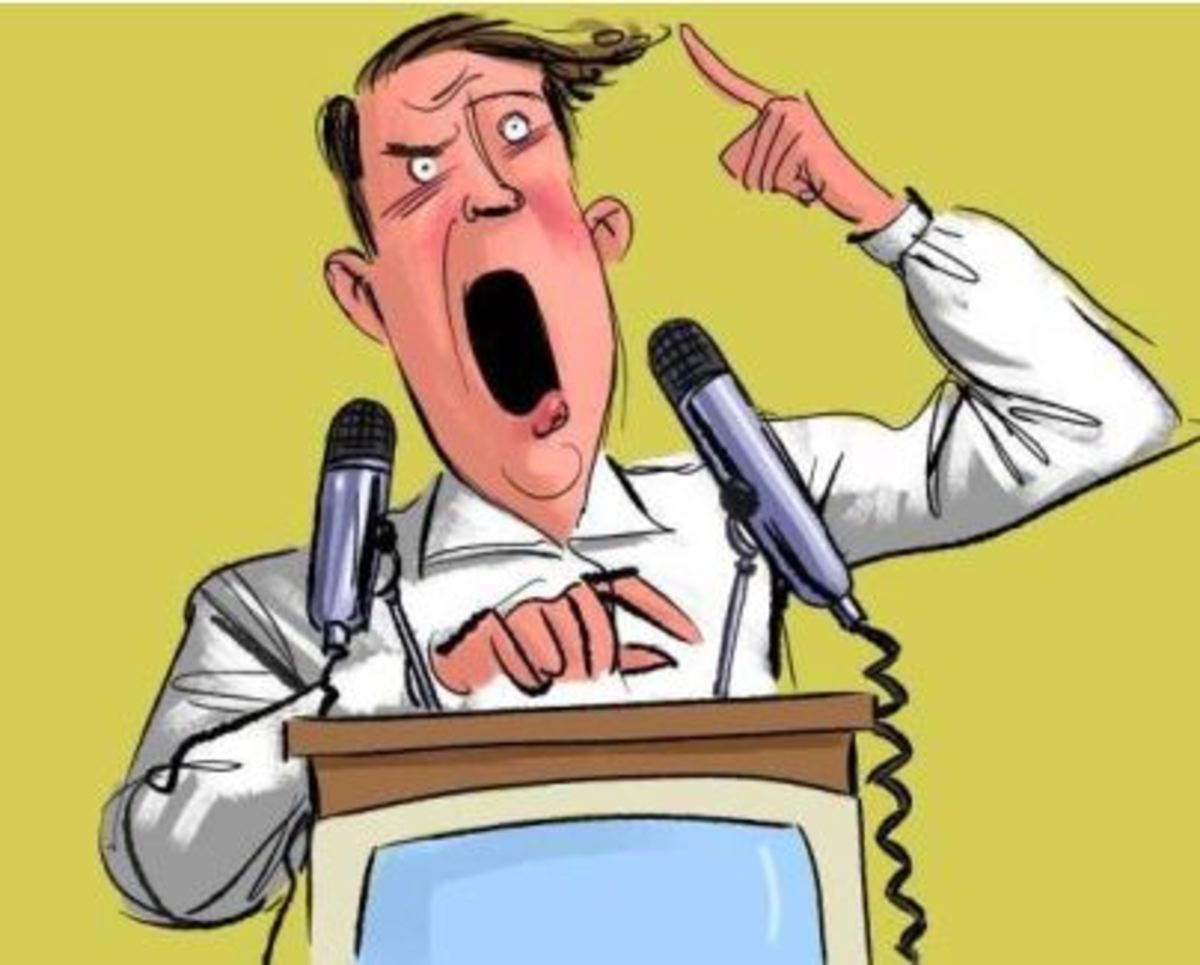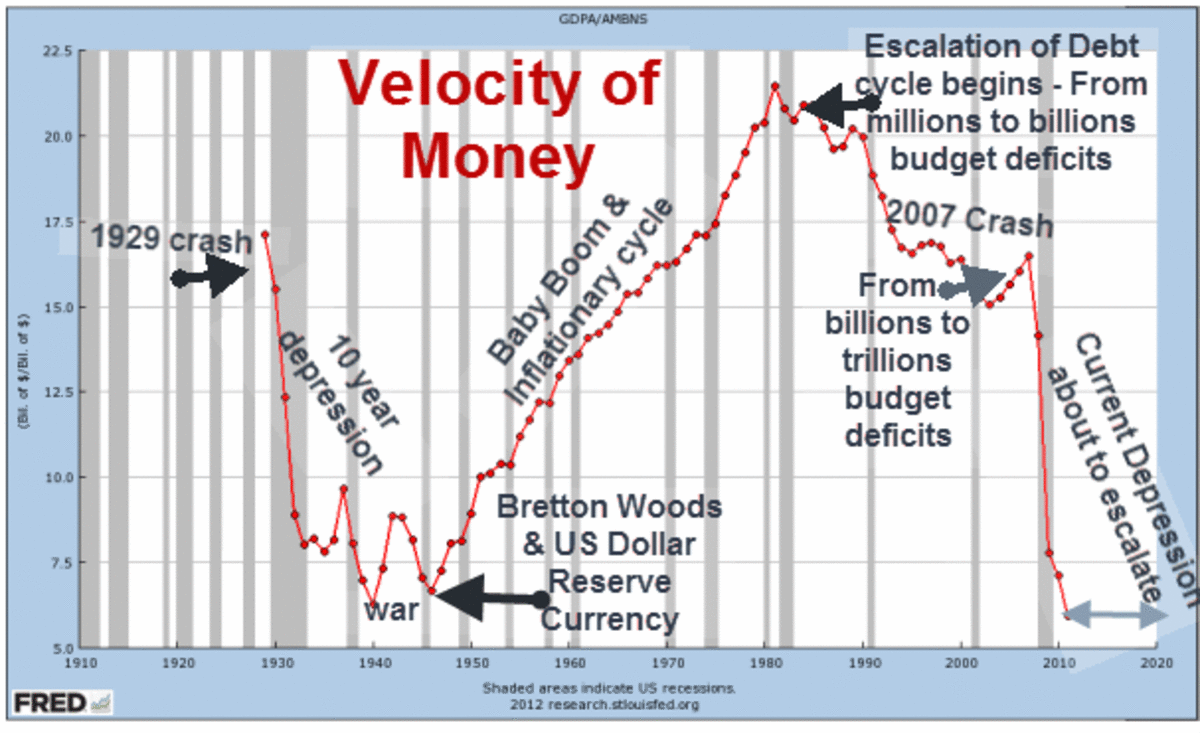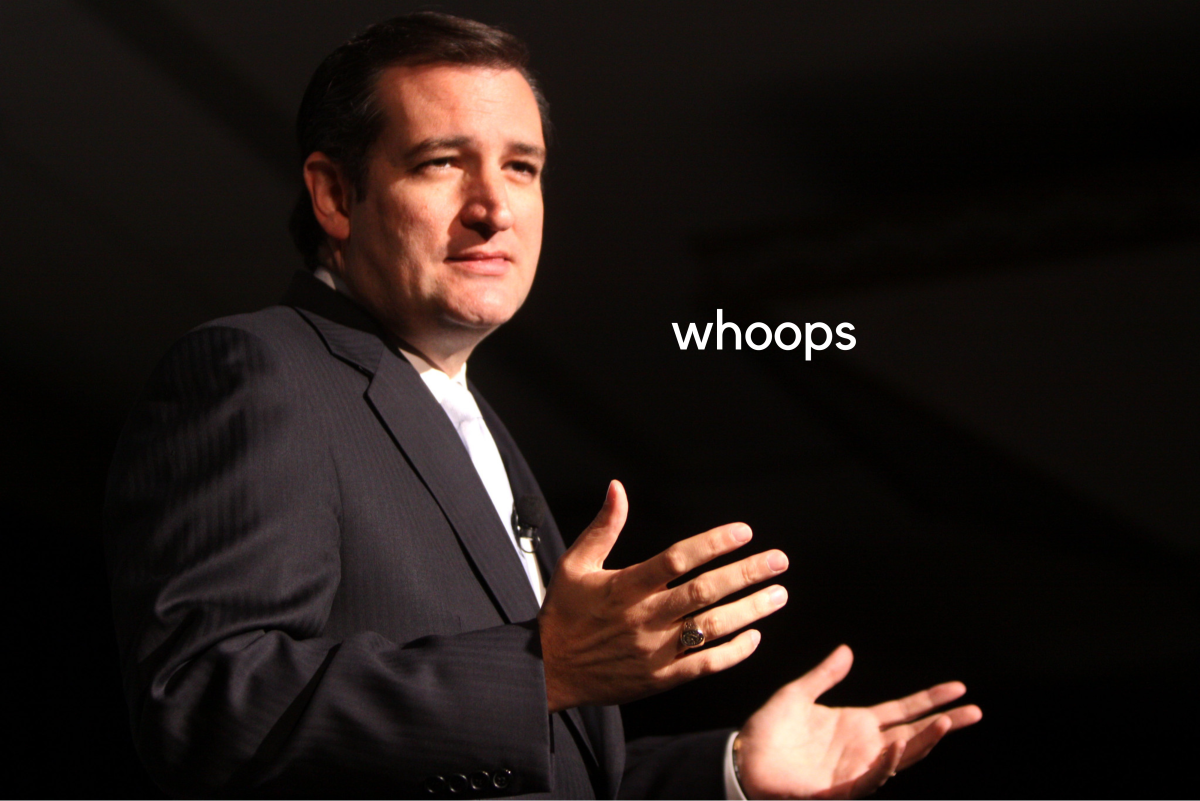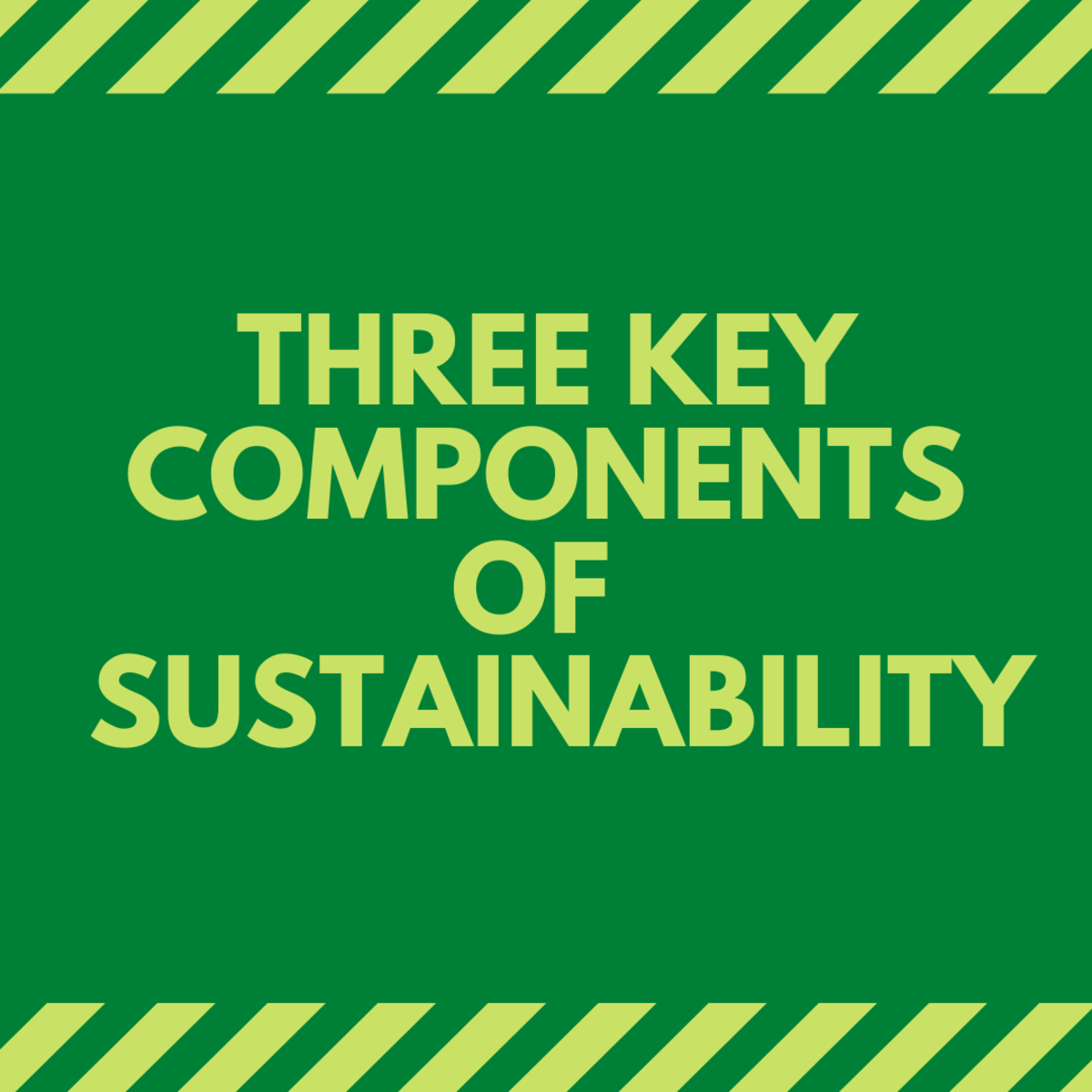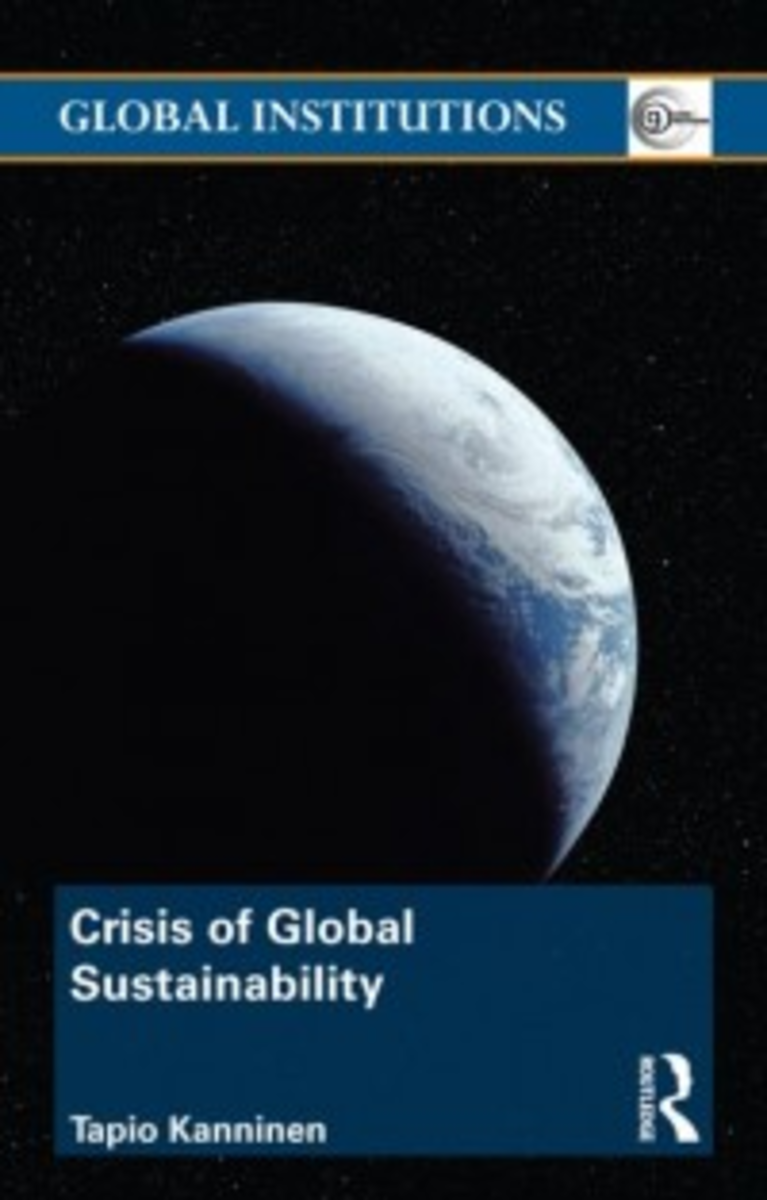The Alternative to The Consumer Mentality
But why should you care?
Because if this situation is left to continue unchecked, it will not be long before our planet and our lives will not be worth saving. We will be so riddled with disease and cancers that the most humane thing to do will be to shoot us like mad dogs.
Existing solutions to the problems will not save us. They are half-baked and half-done and only lead to the situation getting worse. People get concerned with the ozone layer and companies respond by replacing one pollutant with another and we think the problem is over. It is not solved because the basic root cause is still the same. One day, we will become concerned about the environmental damage caused by the second pollutant and companies will again respond by replacing it with yet another new pollutant and all we will have achieved is to delay the inevitable.
THE POLITICS OF HUNGER
Are there indications that we are so removed from a natural human life that we are in the process of losing our spiritual harmony?
We may probably assume that when a person feels so anxious and unbalanced that he needs medicine in order to suppress his insecurity, it will be difficult for him to feel happy. Psychology also tells us that a person who is hampered in his ability to develop, in his joy of experiencing life and his ability to establish contact with other people. In other words, he will be lacking some of the qualities that are most important to a happy life.
The demands create a fear of not being able to keep up; the tempo creates stress, ulcers and heart ailments increase in frequency, and the restlessness has created a need for nicotine that has doubled the number of deaths from lung cancer, despite all medical progress in the course of the last 50 years. The steadily more luxurious food, together with the sedentary life of the modern society is among the causes of the rapid increase in cardiac illnesses in the majority of industrialised countries, where they account for more than 50% of all deaths in many places.
Today, economic growth has become a goal in itself, regardless of what it leads to. And the price we have to pay is in human lives.
An attitude of contentment with material and personal needs cannot be accepted in the society of growth that we have today. As a matter of fact, the system will fall apart from the moment we learn to enjoy life as it is at the moment. If we find out some day that we are well enough off materially, the increase in production will stop, because we will immediately stop increasing our consumption,
with the result that industrial incomes will be reduced as well as our salaries. We will also have a "poorer standard of lving" from a material point of view. All this BECAUSE we have learned to enjoy the good things we have. Our consumer society is not based on the fact that we shall be satisfied.
The system makes life difficult for us in many ways. First, because we have never had an opportunity of being contented and satisfied with what we have. Second, because we are always economically in debt, with the problems this entails. In order to keep well-informed and buy things while they are new, we buy on credit, because we now feel that it is necessary to change the stove twice as quickly as we did some years ago - in spite of the fact that it is just as effecient as when we bought it.
In Norway the average age of a stove was about 15 years in the 1960s. In 1977 the same stove's lifetime was reduced to about 8 years, in spite of the fact that the quality has remained the same. There is, however, resistance being shown by the housewives against the manufacturers' fashion and model ploys!
In the 1950s when the buying on credit really began to take root in the USA, the consumer debt increased from 27 to 41 BILLION dollars in 4 years. In this way the economic worries increase faster than the incomes, and the pressure is constantly greater. At the same time, it was estimated that every day the average American received 1,518 appeals to buy.
There is steadily more spent on advertisements, billboards, trade fairs, film and postal advertising. As a result, more products must be replaced more often. Last winter I saw an advertisement that posed the question: "Does your wife have the latest model in sports jackets?" So now we know: soon we must all replace our sports jackets every year. The most incredible things are being accepted as necessities. Another advertisement recently provided this important bit of information: "Do you believe that the one wristwatch you own goes with everything? Then we must disappoint you. Unfortunately a truly universal watch does not exist. NO! If you want to be well-dressed, you must change your watch to match your attire - a watch for every occasion"
Indeed the more we look at our material gains, and the difficulties we have created for ourselves in recent years, the more apparent it becomes that the growth is costing us too much. And the price we must pay for additional growth may very well be the most important human values we possess.
No society can be constructively humane unless it builds upon the desire of the majority for brotherhood. At least in a democracy the system is created by the wishes of the majority[!?] The day we place human values ahead of material selfishness, we will be able to build a good society.
PURPOSE OF BUSINESS
It is frequently said in books concerning management that the goal of business is profit. It may be said in different ways but the message is always the same. "Business must earn enough money to stay in business tommorrow" (ie make profit). "A business must survive and grow" (by making profit). An alternative goal of business is to increase productivity. But this is the same thing as profit.
Certainly this view of business is shared by most of today's businesses which is why there are holes in the ozone layer, why the rainforests are being burnt down, why we have acid rain and why the oceans are dying. So, following this idea of business for profit, the best business to be in is warmongering.
This destructive view is clearly wrong: if in making profit today you destroy the earth, you not only destroy your chances of making profit tomorrow, but also destroy your chances of spending the profit you made today making the whole process futile.
There is also another problem with the "profit" goal: profit is necessarily measured in terms of money and this is misleading because the value of money does not remain constant; it never has. Sometimes the value increases but most of the time it decreases. Money's loss of value is measured by the rate of inflation. A rate of inflation of just 7% means that the value of your money halves every 10 years. Under such conditions, measuring anything in terms of money without adjusting its value by the rate of inflation distorts the figures. For example, with inflation at 10%, a business reporting a profit percentage of 25% did not make 25% profit. 10% of the figure was due to inflation. The remaining 15% was also reduced by 10% due to inflation and the whole 25% was taxable at (say) 25%. So, that profit percentage of 25% was an actual profit of 7 3/4% after tax. This example demonstrates why few companies are keen to adjust for inflation in this way. Any alternative to the "business for profit" goal must be sustainable. In other words, it should not be so short-sighted.
Yet we cannot ignore money completely. We cannot simply say that a business exists for some non-profit motive like the increase of happiness. Money is required in order to exist in this present economic system.
The whole problem lies with a false view of business.
Whenever people talk about business, they talk about it as if it is a force of nature just like gravity. They talk as if business has a life of its own by talking about the "laws of economics" and "management procedures".
But this is not the case.
Business is human-made. It is an activity of people. It is done by people for people. And because of this, its roots lie in the psychology of people. In other words, business is just another psychological effect like football hooliganism and sexual activity and must be understood from the same perspective. If you are just providing a product or service, you are not in business. You must deal with people.
Taking this more correct view of business, we can more easily approach the problem of the purpose of business. We have already seen how profit measured in terms of money is inaccurate. So, let's take a side step and ask: "what is money trying to measure?"
This is not the question "what is money" because the answer to that is "money is whatever people will accept as money". The reason why people will accept money is because they believe that there is something behind it to back it up. And that something is wealth.
WEALTH
The irresponsible activities of governments and banks with respect to giving credit produces economic expansions (with galloping inflation) and subsequent depressions (with deflation and huge unemployment). Both are bad for business and for people. Yet the problem cannot be sidestepped unless business exerts its influence to stabilise the world economy and provide order to the chaotic markets. This is best achieved through an International Company dealing in all aspects of production and consumption. It will provide a micro-economy within which order can be given every time that world economics falls apart.
To tackle the problems caused by these organisations requires a similar kind of organisation. To deal with an international problem, you have to have an international answer. This is also why personal lifestyle-solutions will not make a blind bit of difference. Banks and business dominate everyone's lives. The only way to beat them is to play them at their own game.
Poverty is not inevitable. It is not due to bad climate or overpopulation but is the direct result of external, multinational forces. These "forces" are far from being beyond the power of man - they are the work of man. Nor are these forces beyond the power of ordinary men. Every time we buy new clothes, a car or walk into a supermarket, we become part of this huge economic process which causes death and suffering across the entire world.
THE BOTTOM LINE: SUFFERING IS AN ECONOMIC COST
The trillion dollar debt is about reducing human life down to pounds and pence.
SUFFERING
Where is there exploitation and suffering and how am I involved?
- 2/3 World - Banks
- Goods
- Some foods
- Commodities
- East bloc - Goods
- USA - Food (Mexican labour)
- UK - Clothes (Indian labour)
Therefore, we want to reduce suffering and increase happiness because suffering is the enemy of life. Whenever one life is threatened everyone's lives are at risk. If someone is suffering today, then the cause of that suffering will affect us all tomorrow if left unchecked. The only way to contain suffering is to eliminate it. The only way to eliminate suffering is to increase happiness.
A DEFINITION OF SUFFERING
Suffering is related to the destruction of resources - the earth and people. Suffering comes from two sources:
- Destruction of the environment - pollution and land destruction through overuse.
- Destruction of people through greed and mismanagement of resources.
THE CAUSE OF SUFFERING
The human race is an endangered species. The worship of money has cost us our humanity, our health and our happiness. If we continue to worship money, it will cost us our lives. This is because our greed will consume us.
Materialism is based on greed. Its economics are the economics of greed. This explains why the words "profit" and "growth" are used so much in economic conversations. But greed has its limits. In the past, these limits were the believed size of the Earth. And these were compensated for by the discovery of the New World - America - and the Third World - the South. But now, the limits of greed are the real, physical limits of the world and its wealth. The Earth has only got so much wealth. There is no more.
Yet greed cannot be satisfied. Some way was required to increase growth limitlessly. It was here that the banks came to the rescue. Banks can create extra money by giving credit - I.O.Us. By the simple means of banks providing guarantees (in the same way that paper money is only good because it is guaranteed by governments), the wealth of the world could be increased. But there is a cost. This new "wealth" is non-existent - like the Emperor's new clothes. And whenever enough people realize this, it causes a panic which produces a catastrophic collapse: a depression.
The only way that expansion and increase may be achieved using credit is to have regular depressions where all credit and debts can be written off and people can start again. So far, this has happened three times in the last 200 years and it is ready to happen again during the 1990s.
North and South are both victims of Money. The solution to one is the solution to the other. You cannot consider solving the problems of one without considering a solution for the problems of the other as well. We all live on one earth and are all subject to one global system of economics.
Underprivilege kills. This is the reason for the problems of the South: we steal their food and resources (offering a very small amount back to them as charity) and they die through the lack of them.
Overprivilege kills too. When you die, it will probably be as the result of a cardiac arrest, cancer or a technologically-based accident. And you will not be alone since these are the greatest killers in the North and all are to do with overprivilege which has led to overconsumption. The car, the ultimate symbol of privilege, which we use to make our lives easier is killing us in a number of ways. The food that we eat is destroying our bodies. Overconsumption has not made us happy. Greater amounts of food together with the inactive life of modern society has led to cardiac illnesses accounting for more than 50% of deaths in the majority of industrialised countries. Ulcers and heart ailments caused by stress and lung cancer resulting from a need for nicotine are some other symptoms of our unhappiness. Today, profit has become a goal in itself, regardless of what it costs. And the price we have to pay is in human lives. The system makes life difficult for us in many ways.
The more we look at our material gains and the difficulties they have created, the clearer it becomes that economic growth is costing us too much. Global economic balance is needed to save both the North as well as the South.
THE SIZE OF THE PROBLEM: THE TRILLION DOLLAR CRIME
The size of the problem is massive - mindboggling. Suffering invades and scars everyone's lives to a lesser or a greater degree. There is just no way of putting a price on all of this suffering in order to give us a target to aim at. And without a target, action is impossible.
But there is some hope for a solution to this problem. It is a well-publicised fact that the suffering in the Third World continues because of their trillion dollar debt burden to the international banking community. No real impact can be made to reduce their suffering whilst the debt remains intact. So, the trillion dollar debt is as good a place as any to start applying a solution.
But a trillion dollars is a lot of money. It is $1,000,000,000,000 or a million million dollars! This is a huge sum. It may not be as mindboggling as the true size of suffering but it comes pretty close. Some people may believe that such a sum is so huge that it is impossible to earn. However, Manhattan boasts about having a million millionaires which between them have assets worth over a trillion dollars. So it is possible.
It is also clear that a small company in Jersey is not going to be able to raise that kind of money in a year or even 10 years. So although it does serve the useful function of motivating us towards greater and greater growth, it is not sufficient to provide a realistic target for company activities in the short or medium term. There is also another problem: if we did earn a trillion dollars, who ould we give it to and would it actually reduce suffering? In other words, although the trillion dollar debt gives us some clue to the size of the problem, it does not tell us the size of then solution or how to solve it.
THE MONEY JUNKIES
If we had a trillion dollars, we wouldn't solve the trillion dollar debt because we wouldn't change the global economy. The Third World would still be unable to support their people and their industries without new debts - and banks would not lend them any money for social programmes because they would not be profitable.
Today, materialism has become a goal in itself, regardless of what it costs. And the price we have to pay is in human lives. The system makes life difficult for us in many ways. This is what the global economy has done to all of us over the last five decades: it has made us into money junkies - living for our next "fix" of money or credit. It has made us into slaves - working overtime in a job we don't like to buy a house we don't want but feel we ought to have.
- We never have an opportunity of being satisfied with what we have. An attitude of contentment with material possessions is unacceptable in today's materialistic society. As a matter of fact, the system would fall apart the moment we learn to enjoy life as it is at the moment. If we decided that we were well enough off materially-speaking then we would not increase our consumption. This would mean that we would have to reduce production to prevent a glut of goods that nobody wants. This would lead to surplus skills, preventing expansion and even causing contraction in the durable goods markets (fridges, ovens, cars, videos, golf clubs, etc). All of this because we would have learned to enjoy the good things we have. Our consumer society is not based on the fact that we shall ever be satisfied.
- We are always in debt by living beyond our means, with the problems this entails. In the 1950s, when buying on credit really began to take off in the USA, the consumer debt increased from 27 to 41 BILLION dollars in 4 years. In this way the economic worries increase faster than the incomes, and the pressure is constantly greater. At the same time, it was estimated that every day the average American received 1,518 appeals to buy. There is steadily more spent on advertisements, billboards, trade fairs, film and postal advertising. As a result, more products must be replaced more often to pay for it. The most incredible things are being accepted as necessities like owning a car, smoking, drinking and fashion!
The more we look at our material gains and the difficulties they have created, the clearer it becomes that economic growth is costing us too much.
THE PAIN MACHINE
G7 has used up much of our own mineral wealth. Most of the mineral wealth left resides in the Two-Thirds World. It also has cheap labour. The relationship between G7 and the Two-Thirds World is that they sell us their raw materials at prices fixed by us in order to finance their loans with banks from us which they took out to buy our higher-priced, value-added products: knowhow, refined goods and, of course, arms. In addition, they also have to deal with the waste materials from our processes.
ENVIRONMENTALLY FRIENDLY IS ECONOMICALLY FRIENDLY
One thing is clear: the present global economic system is like a runaway train careering towards the abyss. In order to turn it into reverse, we must first put the brakes on.
This means developing businesses which do not pollute the earth and do not increase suffering. Thankfully, businesses all over the world are coming to the conclusion that pollution is the result of waste and is therefore a cost which reduces profits. Not only that, disposing of the pollutants also adds extra cost. These businesses are demonstrating that the age-old myth that being environmentally friendly costs more was a lie and we were fools to believe it. They are showing that working hand-in-hand with the natural order of things is cheaper and easier. In other words, going with the flow is a lot easier than going against it.
These companies manufacture products that add value to the lives of the people who buy them without hurting the environment either by their creation or disposal. Three examples are Traidcraft, The Body Shop and Amway but there are many, many more. These companies are actually solving some of the existing pollution problems into the bargain. For example, Amway products are biodegradable - including most of the packaging. Therefore, there is less of a sewerage and waste disposal problem. Therefore, less resources have to be put into handling waste. Another example is a brewery who used bacteria to turn the effluent from their processes into harmless carbon dioxide and water and also created electricity for use in their plant as a by-product. This reduced the amount of pollutants from the present inefficient means of producing electricity, it reduced our need to rely on non-renewable resources and reduced the need for the production of electricity through nuclear power.
Promoting this business attitude represents a great small-step strategy to reducing suffering and increasing happiness.
PEOPLE ARE THE BIGGEST AND BEST RESOURCE
In biology, there are two consequences of population growth:
- EXPLOSIVE GROWTH AND CATASTOPHIC DESTRUCTION - If you put a single bacterium or virus in a limited growth medium in (say) a petri dish, its growth rate is explosive until it has used up all of its food. At this point, with nothing to sustain them, they all die.
- MODERATED POPULATIONS - The insects also have a similar great potential for explosive population growth. However, their major predators (other insects and spiders) can grow as fast as them. The consequence is that whenever the insect population grows, the predator population grows in response and the insect population is brought back under control. So there is moderation and balance.
At the moment, human population growth is following the bacteria system: grow, consume the limited resources for life and produce pollutants that kill. Unchecked, the result will be the same: total death.
A person called Malthus has put forward the argument that there appears to be an inbuilt mechanism inside of humanity to prevent this situation of total ecological collapse from occuring - a mechanism that keeps our population moderated like the insects. When natural disasters like earthquakes, floods, tidal waves, famines and disease keep the population under control, this inbuilt mechanism remains inactive. As soon as we learn to overcome (or at least to reduce) the death toll from such causes, the mechanism switches on and we go to war with each other.
So as far as he was concerned, famine, disease and war are bad but they are much better than the alternative: total destruction of life.
Regardless of whether there may be evidence to support this argument, I personally find such an attitude defeatist. If famine, disease and war are more preferable than the total destruction of life, then there is no reason to find ways of producing more food, better medicines and peace because then the human race would grow and consume everything and die. In fact, there is every reason why we should destroy crop-growing land and medicines because at least famine and disease are preferable to war.
Another reason why I believe it to be defeatist is because it overlooks the main difference between humanity and the rest of the biological world: we can think and act to significantly change our environment.
The earth's resources may be limited but we are not.
People get a bad press. According to the experts, the more people you have, the more pollution and destruction you get. And this is true. But it is not the whole truth. For example, it is claimed that Jersey has a traffic problem: there are just too many cars for the facillities available. This is rubbish. We do not have too many cars, we have too many self-centred, inconsiderate, stupid and careless drivers. And there will never be enough room for this kind of person.
FROM A DESTRUCTIVE ECONOMY TO A CONSTRUCTIVE ECONOMY: WEALTH NOT MONEY
THE MISUNDERSTANDING OF PROFIT - MONEY & PROFIT
It is frequently said in books concerning management that the goal of business is profit. It may be said in different ways but the message is always the same. "Business must earn enough money to stay in business tomorrow" (ie make profit). "A business must survive and grow" (by making profit). Certainly this view of business is shared by most of today's businesses which is why there are holes in the ozone layer, why the rainforests are being burnt down, why we have acid rain and why the oceans are dying. So, following this idea of business for profit, the best business to be in is warmongering (which certainly appears to be the case).
This destructive view is clearly wrong: if in making profit today you destroy the earth, you not only destroy your chances of making profit tomorrow, but also destroy your chances of spending the profit you made today making the whole process futile.
Profit measured in terms of money is misleading because the value of money does not remain constant; it never has. Sometimes the value increases but most of the time it decreases. Money's loss of value is measured by the rate of inflation. A rate of inflation of just 7% means that the value of your money halves every 10 years. Under such conditions, measuring anything in terms of money without adjusting its value by the rate of inflation distorts the figures. For example, with inflation at 10%, a business reporting a profit percentage of 25% did not make 25% profit. 10% of the figure was due to inflation. The remaining 15% was also reduced by 10% due to inflation and the whole 25% was taxable at (say) 25%. So, that profit percentage of 25% was an actual profit of 7 3/4% after tax. This example demonstrates why few companies are keen to adjust for inflation in this way.
Money is continually mistaken for wealth. Because we value everything in terms of money, we believe that money must mean wealth. We think that having a lot of money means that we are wealthy. But real wealth consists of what is produced: the food we eat, the clothes we wear, the houses we live in. It is railways, roads, cars, ships, planes, factories, schools, churches, theatres, pianoes, paintings and books. The deception caused by confusing money with wealth is so powerful that it is hard to get out of this rut. Everyone believes that if they had twice as much money, they could buy twice as many things and so would be twice as "wealthy". But this is only true if you are the only one getting twice as much money. Money is an IOU printed by governments which is guaranteed by the amount of existing wealth of that country. If a government prints twice as many IOUs (money) without doubling the amount of existing wealth, each IOU is worth less because it is guaranteed by less wealth. The difference between money's real value and its believed value is pure illusion. This reduction in the value of money will be demonstrated by an increase in prices for goods. This is inflation. The rate of inflation shows the difference between the amount of money printed and the amount of real wealth to back it up. You can imagine what impact a 5% rate of inflation is really having on your wages! It is believed that the road to riches for everyone is to print more and more money. But nobody can get something for nothing and the price to be paid for believing this lie is inflation. And inflation is the hardest type of taxation. It cannot be controlled or even predicted by governments. It strikes everything and everybody without discrimination and so hits the poor the hardest because they have the least means (real wealth) to protect themselves. And in the end, everyone but the very richest becomes a victim on the day of reckoning: the Depression.
HENRY HAZLITT: Inflation is the opium of the people... It encourages squandering, gambling, reckless waste of all kinds. It often makes it more profitable to speculate than to produce. it tears apart the whole fabric of stable economic relationships. Its inexcusable injustices drive men toward desperate remedies. It plants the seeds of fascism and communism. It leads men to demand totalitarian controls. It ends invariably in bitter disillusion and collapse - "Economics In A Single Lesson"
The ease with which more paper money can be printed has been (and will continue to be) a terrible temptation for governments to give the appearance of making people richer for the sake of continued popularity. This is the cause of inflation which sows the seeds of the next depression.
During Depressions (also known as Recessions), paper money will lose its value. Governments may choose to limit the amount of money they print but the money value will still drop because of the reduction in real wealth (production). If governments attempt to stop the crash in money value by increasing the amount of money, they will cause hyperinflation, like Germany did during the Thirties.
As we have already seen, when you are seeking the largest short-term profits, everything is a liability: human rights, sensible wages, the health of employees, proper machinery and the environment. This is quite insane. To extract profits out of people and the world in this way is to destroy both of them so that they cannot produce profits tomorrow. The whole exercise is self-destructive. To get the most out of people and the world, business should be geared towards people. Where present profit is reduced to provide an increase in health, working conditions, training people and care for the environment, it increases the business' ability to create future profit regardless of the economic conditions. Secondly, if profit is poured back into increasing employment, this produces real growth and real wealth. The consequence of these actions is that business becomes more stable and more able to increase the real wealth of the world rather than just leech off of it.
A DEFINITION OF A PRODUCER ECONOMY
The Producer Economy differs from a Consumer Economy in how it measures profit. The Consumer Economy measures profit in terms of money but money is a meaningless IOU which is only as good as the government which prints its - the rate of inflation shows how bad that is! On the other hand, a Producer Economy measures it in terms of wealth which is itself measured by increasing productivity and market share (& the creation of new markets).
PEOPLE ARE PROFIT
This is the real difference between us and most other companies. We believe that the only way to make large, long-term, sustainable profits is by increasing real wealth and this can only be done by treating people as people.
This leads us to two conclusions:
- People are profit - therefore we must develop people's capabilities into real abilities. This can only be done by satisfying all peoples' needs. To do this, we must review personality and reorganise mass behaviour.
- Destruction of the earth is a destruction of profits - the wholesale destruction of the earth by wasteful activities is completely intolerable. To do so, is to destroy our existing wealth and people (the only means of producing wealth).
According to this understanding, there are only two ways of increasing profit:
- REDUCE WASTE - which can only be done by using the wastes of one process as the raw materials of another. The easiest way to do this is to play along with nature.
- INCREASE PRODUCTIVITY - The only way to increase productivity is by making people more productive. The only way to make people more productive is to make them more motivated and more capable to do better work. And this can only be done by allowing them to increasing their humanity by improve their lives and their living conditions.
MAXIMUM PRODUCTION OF WEALTH
In order to move from a consumer economy to a producer economy, we must answer two questions:
1. What do we produce?
2. Who can produce it?
The answer to the first question is simple: We should produce anything that reduces suffering and increases health, happiness and wholeness for all. Suffering is a direct measurement of the loss of someones' humanity. The easiest place to look in order to start defining humanity is at how we interact with our suroundings. These interactions are normally described in terms of needs.
The second question is actually two questions:
1. Who can reduce the suffering of a person?
2. What kind of person can become actively involved in the production of wealth?
This idea has two consequences:
1. Apart from raising them to a state where they are fit to work, no one can reduce a persons suffering but themselves.
2. People become more able to satisfy their needs when they are brought into closer touch with their highest needs - self- activation needs.
The maximum production of wealth is when the maximum number of people are actively involved in improving their lives.
A DEFINITION OF SUFFERING
Therefore, we want to reduce suffering and increase happiness because suffering is the enemy of life. Whenever one life is threatened everyone's lives are at risk. If someone is suffering today, then the cause of that suffering will affect us all tomorrow if left unchecked. The only way to contain suffering is to eliminate it. The only way to eliminate suffering is to increase happiness.
Suffering is related to the destruction of resources - the earth and people. Suffering comes from two sources:
- Destruction of the environment - pollution and land destruction through overuse.
- Destruction of people (our greatest resource) through greed and mismanagement of resources.
COMBATTING EXPLOITATION
In order to combat exploitation, we must be able to compete with it and win on all counts whilst not attracting aggressive attention from our competitors in the process.
That will require diversification and/or large amounts of money from non-exploitive sources.
What is needed is a way of combatting suffering on a small scale that can be increased as resources become available.
WORK NOT JOBS
Job creation is easy: all you do is pay someone to do something - anything. Job creation is not interested in what is produced. It is only interested in marking time. Work creation is more difficult because it requires that the job has a meaning - a mission. This requires an overall picture of how the results of that work fulfill a specific function which is actively involved with someone's humanity.
NORTH-SOUTH: CORRECTING THE IMBALANCE
Some have said that the North is rich and free because in the past it enslaved and robbed the South. This is true.
Some have said that the North continues to be rich and free because it continues to enslave the South. This is also true.
In the past, whenever the issue of human freedoms has been raised, it has focused on civil and political freedoms but has overlooked the economic and social ones. In this way, the North has spoken out strongly against torture, censorship and oppression. But at the same time we have been silent about our taking part in a world economic order which makes the freedom to life itself increasingly difficult in many places. This is simply because it is very profitable for us to turn a blind eye to the suffering and injustice we cause.
The North sees the development of the South in terms of charity - of how generous we can afford to be in times of recession. However, the South sees the issue more clearly as one of freedoms and of the practice of justice. Underdevelopment is not just a lack of industrialization. It also includes a large measure of deliberate injustice. Economic policies have been, and are being, pursued which act against both the short-term and long-term interests of approximately one thousand million destitute people in our world. This is a matter of freedoms and not just of technical, economic debates.
While the North controls the money and business of the South through the International Monetary Fund, World Bank, multinational companies and commercial, international banks, the South will always be at our mercy. Economic advice from the North has constantly failed to achieve long-term economic growth of the South which would benefit everyone. Yet the same old cliches about "growth before redistribution" are continually used to excuse our selfish economic policy. The loss of civil freedoms in the South depends on how closely they follow economic advice from the North. The policy of oppression in the South is the result of the unquenchable thirst for economic and political power of the North.
Armed with the Christian understanding of human nature, we must not allow ourselves to be deceived that the present world-wide economic system is simply the outcome of mistaken economic ideas or cultural differences. It is the deliberate result of a policy based on greed by those in power in the North.
And we are all guilty of the crime of economic injustice because we all collaborate with the present world system. When we pick up a jar of coffee, we become the last link in a chain that started with world debt and world economics and which causes suffering, enslavery and death to hundreds of millions of people. This theft has degraded everyone. We have robbed the South of their humanity and lost ours in the bargain. Everyone loses.
Lives of freedom are lives of equal freedom. Our re-created lives must correct the inequalities of the past and the present by taking actions to shape the future. Re-created lives are lives of efficiency and responsibility freely accepted and freely lived. Christians have the power of God and must accept the responsibility to use it properly.
Some have said that we in the North should give back the riches that we stole from the South. But what about their destroyed population?
What about their destroyed lands?
What about their destroyed industries?
What about their destroyed educations?
And what of their destroyed humanity?
If we simply return their riches, we give them nothing because all they could do with them would be to give them back to us to pay off their huge debts. After all, this is what already happens with most aid donations. Yes, let us give them back what we have stolen - all of it! Let us give them back their lives with interest on top. But to do that, we will require more just lives in a just society - for everyone's sake!
PEOPLE NOT PROFIT
This is the real difference between us and most other companies. We believe that the only way to make large, long-term, sustainable profits is by increasing real wealth and this can only be done by treating people as people.
This leads us to two conclusions:
- People are profit - therefore we must develop people's capabilities into real abilities. This can only be done by satisfying all peoples' needs. To do this, we must review personality and reorganise mass behaviour.
- Destruction of the earth is a destruction of profits - the wholesale destruction of the earth by wasteful activities is completely intolerable. To do so, is to destroy our existing wealth and people (the only means of producing wealth).
Because the world worships Money, businesses are geared to producing profits - money earned by the business once expenses have been deducted. When you are seeking the largest profits, everything is a liability: human rights, sensible wages, the health of employees, proper machinery and the environment.
This is quite insane. To extract profits out of people and the world in this way it to destroy both of them so that they cannot produce profits tomorrow. The whole exercise is self-destructive. To get the most out of people and the world, business should be geared to people. Where profit is reduced to provide an increase in health, working conditions, training people and care for the environment, it increases the business' ability to create money regardless of the economic conditions. Secondly, if profit is poured back into increasing employment, this produces real growth and real wealth. The consequence of these actions is that business becomes more stable and more able to increase the real wealth of the world rather than just parasitise it. A social Audit is necessary to prevent this.
People are productivity.
According to this understanding, there are only two ways of increasing profit:
INCREASE PRODUCTIVITY - which can only be done by increasing the humanity of people by improving their lives and their living conditions.
REDUCE WASTE - which can only be done by using the wastes of one process as the raw materials of another. The easiest way to do this is to play along with nature.
Main Hub: Living Without Cruelty
Next Hub: Health, Wealth and Happiness

